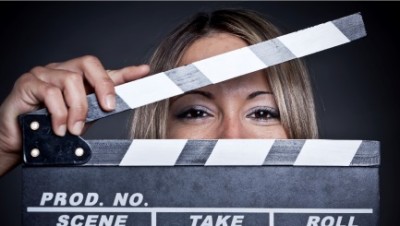Why I Don’t Go Out to the Movies Anymore
Last week I ventured out of my home in a suburb of Los Angeles to watch a film in a movie theatre. Awhile back, I used to go out to movies all the time. During the 1960s and ’70s, the films of Federico Fellini, Ingmar Bergman, Francois Truffaut, Francis Ford Coppola, Stanley Kubrick and other great artists had made me a regular and devoted filmgoer. I was so inspired by their work that I even made a few small documentary films of my own.
But in recent years I have been turned off by the movies. The combination of the steeply declining quality of movie fare now offered by the film industry, the boorish and disrespectful behavior of American movie audiences, who text, talk, slurp drinks, and rustle their jumbo popcorn bags while the film runs has made movie going, for me, a dreaded experience. I don’t mind waiting until films I think might be worth watching are available from Netflix and I can experience them in the sacred dark and silence of my own private space. The communal experience of entering the dream world of a film with strangers who have come to the theatre to be placed under a spell has been shattered by the grossness of both the films being exhibited and the audience they have desensitized.
Occasionally a film comes along that demands to be seen in a movie theatre. It may be because of the scale and scope of the film (Avatar, Gravity), it may be because of the eccentricity of its subject matter (Deceptive Practice: The Mysteries and Mentors of Ricky Jay), it may be because of a larger than life acting performance (think Daniel Day Lewis in My Left Foot), or it may be because of the prospect of the kind of magic that only cinema in a theatre can provide. It was in anticipation of seeing such a film that my wife and I drove to Beverly Hills to watch the twelve noon screening of The Grand Budapest Hotel on the final day of its long run in Los Angeles.
The distance from our home in Pacific Palisades to the Music Hall theatre is only fifteen miles, but we allowed forty-five minutes for the trip. Traffic was heavily clogged on Wilshire Boulevard, our most direct route, and when we arrived at the theatre the previews had already started. I entered the darkened auditorium hoping to find seats far from any other patrons. To my great relief, I saw that there were only two other people in the theatre, a young couple. We sat in the far end of the back row and waited for the feature to start. I cocked my ear towards the other couple, and heard not a peep from them. No food, no drink, no conversation, no texting. They were watching the movie!
And what a movie it was, transporting us into a fabulous world of whimsical characters and fanciful circumstances that only film could make fully credible. The director, Wes Anderson, who also co-wrote the film, was offering us, through the story of an enlightened concierge of a make-believe luxury hotel in a make-believe European country about to be consumed by a make-believe but easily referenced war, a lesson in civilization and its possibility of survival through acts of decency and love and courage. A lesson delivered without preaching or sermonizing, in the most unsentimental tone of levity and winking humor. Anderson was redeeming our fucked up world, and his audience, with the touch of a fairy wand. He accomplished this through a brilliant combination of movie elements: a cleverly chosen cast that featured many marquee actors in small roles (Bill Murray, Owen Wilson, Bob Balaban), and still others in major parts (Ralph Fiennes, F. Murray Abraham, Jude Law, Adrien Brody, Willem Dafoe, Harvey Keitel); beautiful set design and cinematography that placed the story in a bright, candy-colored realm of pure imagination; and a droll musical score charged with playful counterpoint.
But what made watching the film so sublime was the almost complete absence of a movie audience that could, by its distracting behavior, destroy the dream state that Anderson was so artfully creating. In the almost deserted theatre it was as if the film were watching itself.
My wife and I came out of the theatre into the glaring Los Angeles afternoon. Slowly, reluctantly, we re-entered the life of the city around us, a life dominated by swarms of impatient automobiles and lines of drab gray commercial buildings. The bright colors, the vivid characters of Anderson’s fantasy faded from us like the wistful memory of a seductive dream.


Comments are closed.